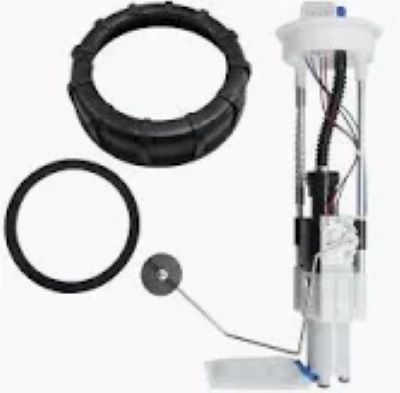The lifespan and performance of the Fuel Pump is greatly affected by the quality of fuel. The Fuel Pump: The fuel pump generating power sends up a certain pressure of the order 30 to 80 psi, depending on your vehicle from the tank towards the engine. Fuel laden with impurities like dust, water or over amounts of ethonol can cause the Fuel Pump to clog up or inefficiently perform causing it to be under added stress and potential failure not long after.
More impurities can be recycled, which is one of the reasons high or low-end fuel pumps cause wear and tear. Increased strain on the pump by as much as 20% due to any flexing of ground parts increases the wear and tear on all components making it very likely that its average life span, which is in regions of 100,000 miles will be reduced. This is revealed in a behind-the-scenes 2021 study conducted by the American Petroleum Institute, where they found that up to 15% of fuel system failures were attributable to insufficient quality gasoline which mostly affects Fuel System like its Pump.
The ethanol content of fuel is another factor which affects Fuel Pump performance. The internal components of the pump can also be corroded by ethanol-blended fuels, especially those above 10% ethanol (E10). This also causes the ethanol to eventually absorb moisture from air, which in turn, leads to water contamination of the fuel system. In time, the metal parts in the Fuel Pump will be eroded by the water and ethanol mixture which can cause inefficiency as well as possible failure.

A notable example took place back in 2018 when it was confirmed that Volkswagen has a major issue with the Fuel Pump experience failure in some models. The faults were blamed on bad fuel and high ethanol content, ultimately prompting an official recall for over 50,000 vehicles. This is an extreme example of what S#*T fuel can do to key components in the vehicle e.g. The Fuel Pump.
Investing in higher grade fuel that contains minimal ethanol and routinely changing the fuel filter can reduce these dangers for your Fuel Pump. Such a condition, clogged fuel filter will allow less fuel flow to the pump which means that the pump has to work harder and will not be able to maintain required pressure. It is suggested that the fuel filter should be changed every 20,000 to 40,000 miles for an improved performance.
The legendary automotive designer Carroll Shelby used to say, "There are 100 ways to make a car faster but you need to be reliable in order to win races." The reliability of a Fuel Pump is not just about the quality of the fuel but also regular maintenance for everyday drivers.
In instances where bad fuel quality is believed to be the cause, it is also crucial to clean or change the Fuel Pump itself so that long-term harm does not become a problem. A reliable Fuel Pump and provide sufficient fuel pressure to retain optimal performance and avoid more severe problems such as a weakened or failing pump that needs to be replaced.